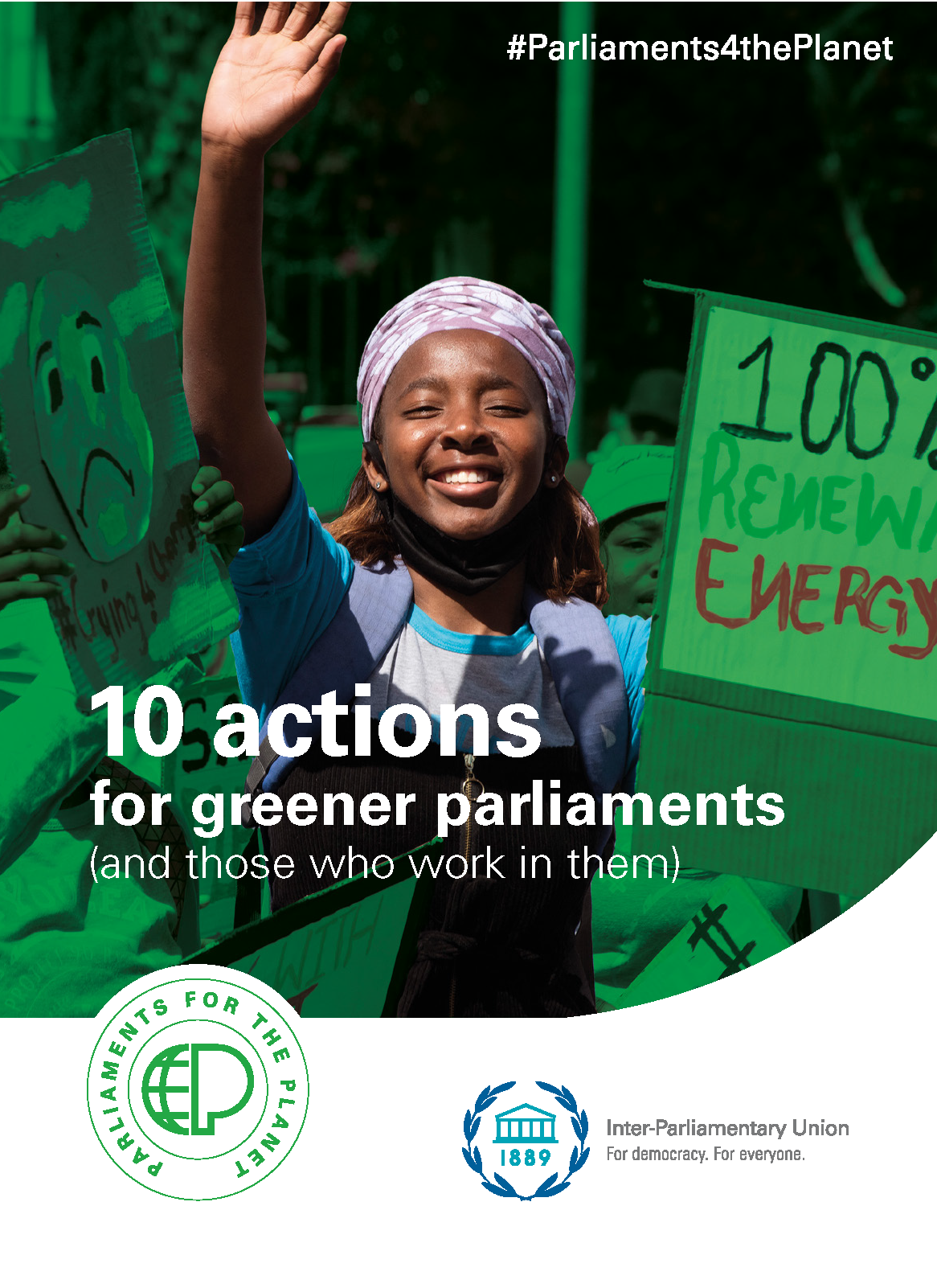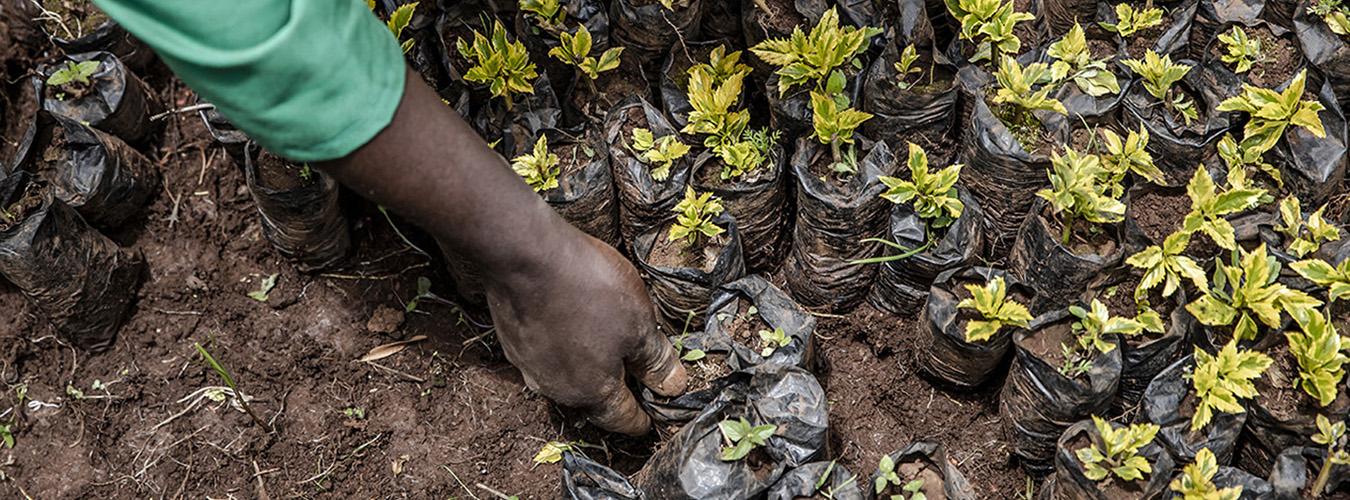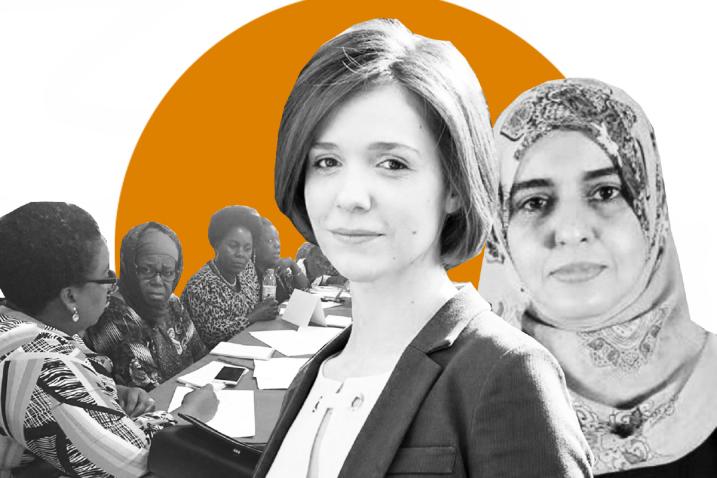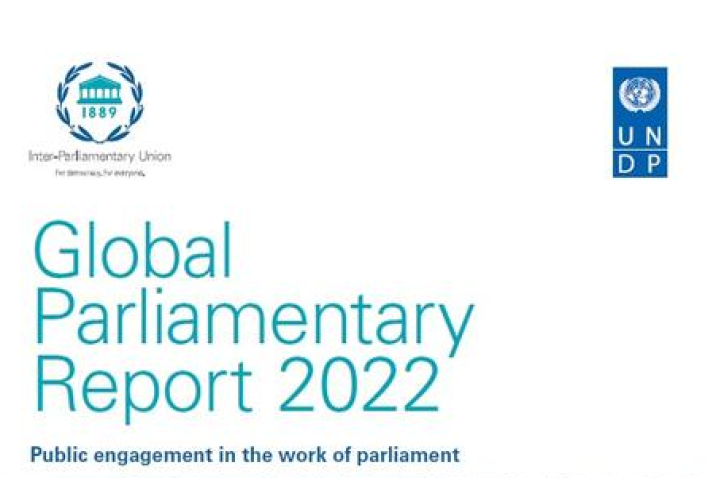Parliaments for the Planet
Climate action begins at home. Parliaments and those who work in them can take concrete steps to reduce their carbon footprint, both as institutions and individuals. By adopting greener policies and embracing a culture of sustainability, parliaments and parliamentarians can help address the climate crisis and pave the way for stronger climate action.
Climate change is killing people and destroying lives, development, peace and security all over the world. The IPU helps parliaments make progress on the Paris Agreement as well as other climate treaties, accelerate decarbonization and reduce the carbon footprint within parliaments themselves through its research, tools and meetings. As a first step, they can decarbonize their place of work by putting in place the IPU’s 10 actions for greener parliaments (and those who work in them).

10 actions for greener parliaments
Parliaments and parliamentarians must lead by example before preaching to the people. These actions cover three categories: institutionalizing the greening of parliament, greening the way parliaments and their members work, and leading and fostering a culture of sustainable change. Climate action begins at home.
Background
The International Day of Parliamentarism is celebrated every year on 30 June, the date in 1889 on which the IPU was founded. The Day was established in 2018 through a United Nations General Assembly Resolution.
Instituting an international day for parliaments is particularly important at this critical time for parliamentary democracy, when people are losing trust in political institutions and democracy itself is facing challenges from populist and nationalist movements. If democracy is to thrive, then parliaments, as the cornerstone of functioning democracies, need to be strong, transparent, accountable and representative.
The International Day of Parliamentarism is a time to review the progress that parliaments have made in achieving some key goals to be more representative and move with the times, including carrying out self-assessments, working to include more women and young MPs, and adapting to new technologies.
The United Nations General Assembly, in its resolution A/RES/72/278, recognized the role of parliaments in national plans and strategies and in ensuring greater transparency and accountability at national and global levels.
For more details
Watch
134 years in 134 seconds
The international Day of Parliamentarism is also the anniversary of the Inter-Parliamentary Union. How did the IPU grow from a handful of parliamentarians from 9 countries who met for the first time on 30 June 1889 to become the global organization of parliaments? Discover the IPU's 134-year history in 134 seconds.
Campaign

My parliament, my planet !
Parliaments for the Planet is designed to mobilize parliaments and parliamentarians to act on the climate emergency. Learn how your parliament can lead by example.
Resources
- General Assembly resolution establishing the International Day of Parliamentarism (A/RES/72/278)
- UN Secretary-General's report on the interaction between the United Nations, national parliaments and the Inter-Parliamentary Union (A/74/759)
- Inter-Parliamentary Union
- United Nations and the Rule of Law
- International Day of Democracy
- UNDP: Agora Portal for Parliamentary Development
- United Nations Democracy Fund (UNDEF)




